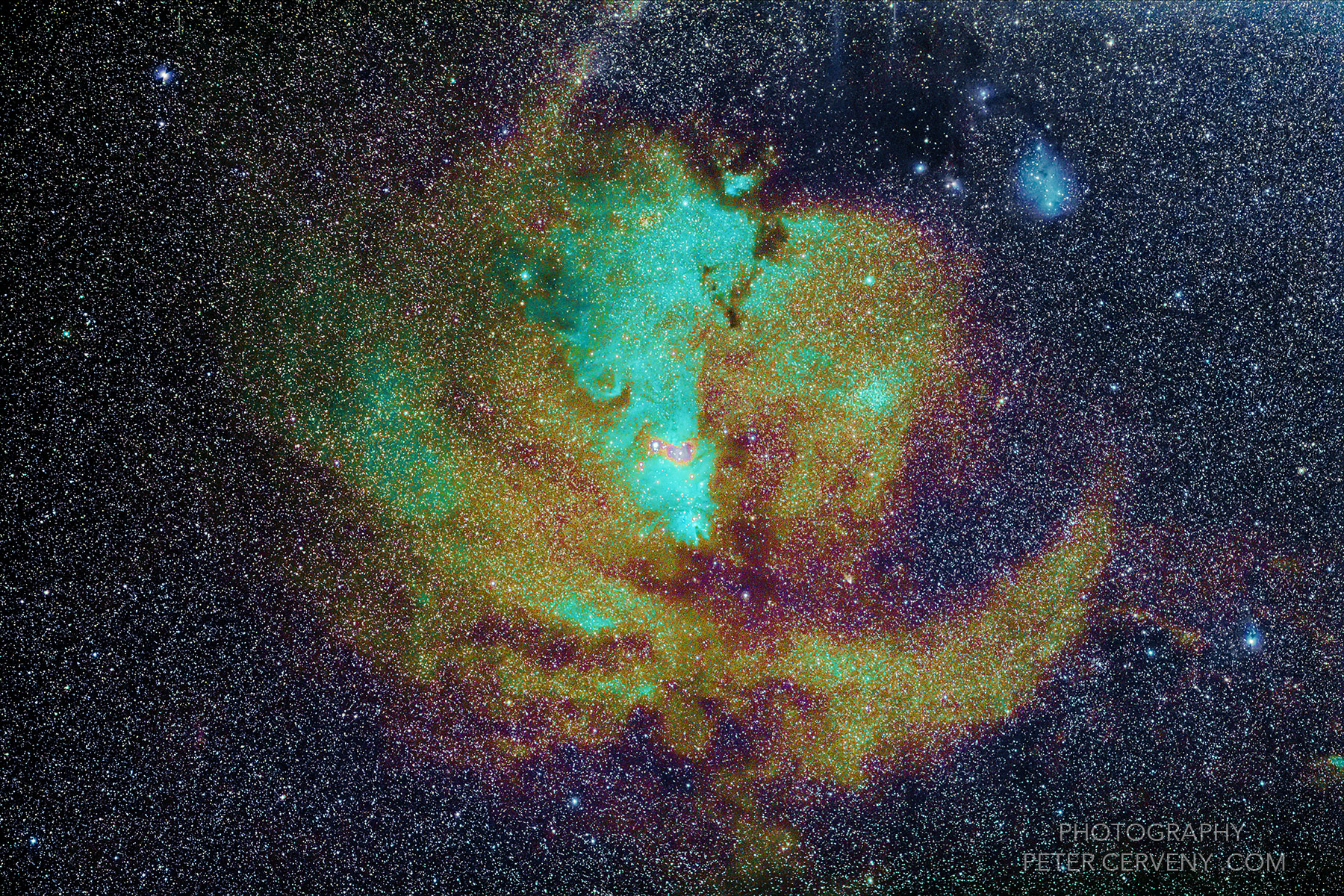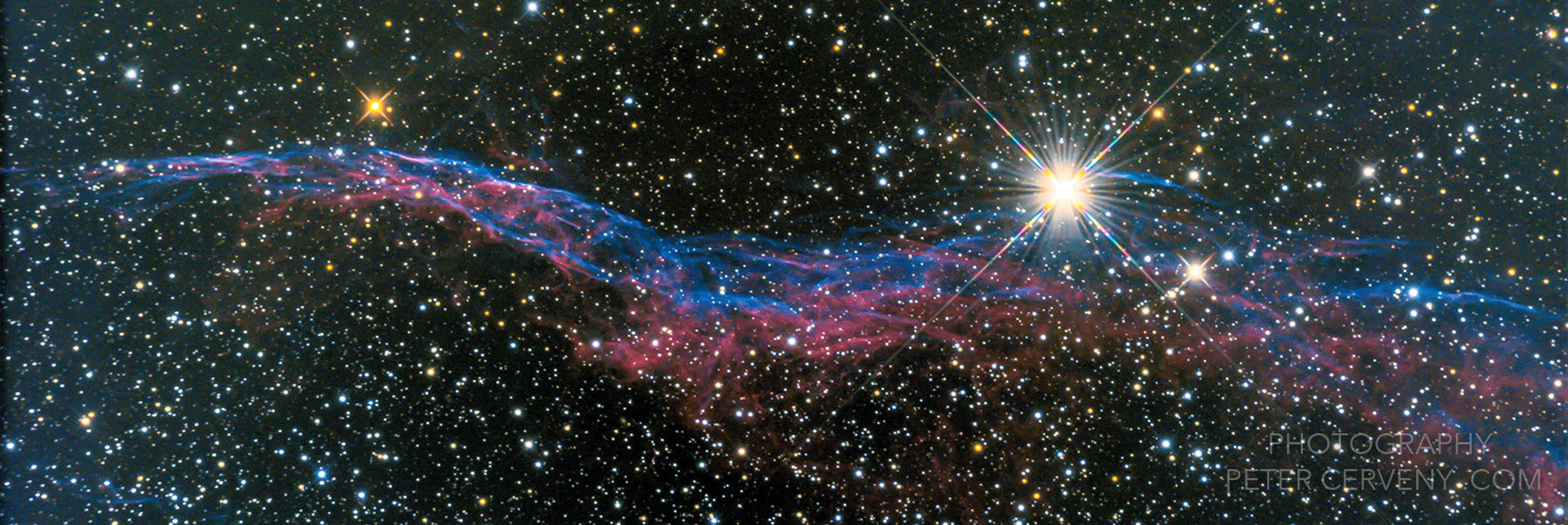
The Cone Nebula is an H II region in the constellation of Monoceros. The nebula is located about 830 parsecs or 2,700 light-years away from Earth. The Cone Nebula forms part of the nebulosity surrounding the Christmas Tree Cluster.
The cone's shape comes from a dark absorption nebula consisting of cold molecular hydrogen and dust in front of a faint emission nebula containing hydrogen ionized by S Monocerotis, the brightest star of NGC 2264. The faint nebula is approximately seven light-years long (with an apparent length of 10 arcminutes), and is 2,700 light-years away from Earth.
| Object | NGC 2264 - Cone Nebula (wide field) |
|---|---|
| Constellation: | Monoceros |
| Position: | RA 6h 41m DEC +9° 53′ |
| Apparent Size: | 20 arcmin (photo 4.8°x7.2°) |
| Apparent Magnitude: | +3.9 |
| Distance (average) | 2600 ly |
| Photo Datas | |
| Date | 01.01.2017, 21:30 UTC |
| Location | Knottenried/Oberallgäu, 1002m ASL GPS: 47°36’13“ N, 10°11’24“ E |
| Sky darkness SQM-L | Zenit 21.12mag/sqrsec, Object 20.90 mag/sqrsec |
| Ground Temp./Air Pressure | -5.0°C / 1028mbar |
| Thermal sky temp./weather | > -60°C Zenit, clear |
| Seeing (Bortle) | 6/10 |
| Telescope | Canon EF 300mm f/2.8 L IS USM I |
| Camera | Sony A7Ra mod @ T sensor=-1.0°C |
| Expose frames | ISO 3200, RAW 11x60s, 5 darks, 5 flats |
| Total expose |
11 min. |
| Filter | CLS-CCD |
| Mount | HPS 10Micron GM 3000 |
| Guiding Cam | no |
| Software | DSS 3.3.4, Photoshop CC |
| Remarks |
C 2017 Peter Cerveny
